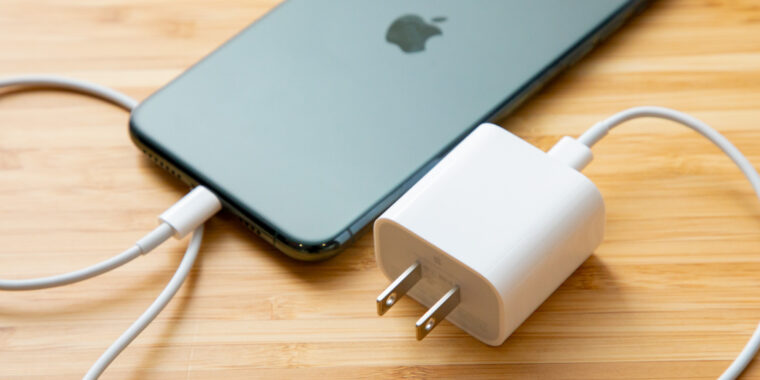
Come September 12th, a new era of innovation will take hold of the grounds. As Apple plans to announce a new generation of devices, every college student will surely be drooling to get their hands on them. Or will they?
It seems after so many different Apple launches, consumers have been entranced into a cycle of trading in a perfectly up-to-date phone for one that is only marginally superior. However, this year will be different. Or so they say. Speculation for this year’s phone brings news of Apple finally embracing the USB-C connector and possibly leaving the Lightning connector for those who simply can’t get with the times. It seems bizarre, since only a year ago Apple was adamant on keeping their trademarked Lightning port despite USB-C’s superiority in both transfer speeds and accessibility. Apple would have continued to use their unconventional connector if it wasn’t for the European Union which has now mandated that all mobile device manufacturers use USB-C as the standard port.
It turns out that this is quite beneficial to the marketing team at Apple, and less so for the consumer. What this means is that Apple will likely switch all of their devices to USB-C to continue their promise of seamless connection between products. This potentially indicates that unless you want to have multiple different chargers for each of your Apple products, you will need to upgrade each of your appliances. This includes the iPhone of course, but this also means that you won’t be able to use your old Airpods, iPads, or Macbooks with the new USB-C connector that you’ll need for your new phone. Now of course you could always get an aftermarket adapter for your charger, but we’re sure Apple will also cover this as it will be another way for them to take your money.
Who knows? Maybe this year Apple will get rid of another port on the phone and make it entirely wirelessly charged. They had no problem moving to this solution with the auxiliary port on the iPhone 7, and it seemed to move mobile devices in a new direction as they pushed the boundaries of Bluetooth technology. Maybe it is time for Apple to yet again take an enormous leap in a new direction.
While the USB-C switch will bring major change to current IOS users, it’s definitely in the hope of a better direction. Sure, Apple might pull the strings of the phone market and have the consumer conform to the “Apple way”, but at the end of the day, the iPhone will be getting a faster and more available charging connector.
What this means for the college community is yet to be determined. Will Android and IOS users finally embrace each other as comrades in connectors? Likely not, but we can say the age-old “Does anyone have an iPhone charger?” might cease to exist in a few years as the inclusive terminology is phased out. We’re sure the news of the connector switch will eventually reach the masses but there may initially be some confusion when an iPhone with an Android charging port hits the streets.
Whatever the case, the future looks bright for Apple and surely the entire mobile device market, as it has since the release of the original iPhone back in 2007. We will look forward to seeing the integration of the future at the University of Virginia.
The opinions expressed within this piece represent the views of the author alone and do not necessarily reflect the views of The Jefferson Independent.


Leave a Reply